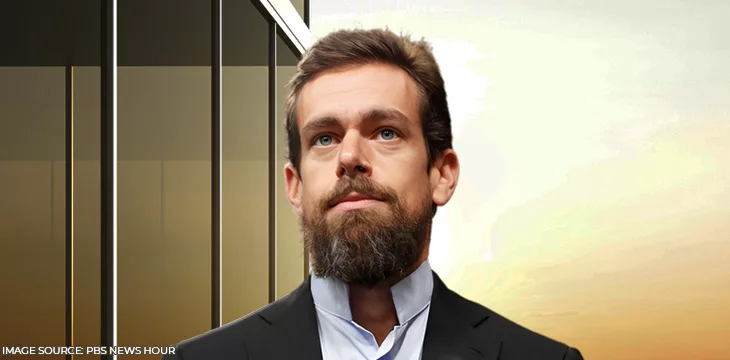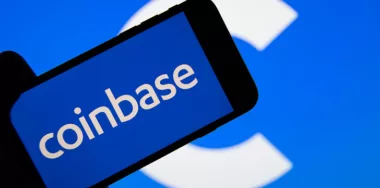Jack Dorsey’s payment processing company Block (NASDAQ: SQ) is reportedly under investigation by U.S. federal prosecutors over shoddy compliance efforts that allowed terror groups and sanctioned entities to transact in digital assets.
On May 1, NBC News reported that a former Block employee had met with prosecutors at the U.S. Attorney’s Office for the Southern District of New York regarding ‘widespread and yearslong compliance lapses’ at Block’s Square and Cash App divisions. Square is a small- and medium-sized merchant-focused credit card processor, while Cash App focuses on retail users.
The gist of the probe is focused on Block’s failure to collect adequate information from Square and Cash App users, which has led to entities in countries under U.S. economic sanctions to process transactions using dollars, credit cards and BTC. The former employee also said unspecified terrorist groups are availing themselves of Block’s BTC transaction options.
The ex-staffer, who NBC granted anonymity to avoid reprisals, said Block failed to report these suspect transactions to the feds, nor did the company revise its practices after being alerted to its deficiencies.
The ex-staffer is being represented by former Securities and Exchange Commission (SEC) attorney Edward Siedle, who said it seems evident that “compliance lapses were known to Block leadership and the board in recent years.”
NBC quoted the ex-staffer saying: “From the ground up, everything in the compliance section was flawed. It is led by people who should not be in charge of a regulated compliance program.” A second source with knowledge of Block’s compliance efforts concurred with the ex-staffer’s claims.
NBC’s report followed another report in February involving two different whistleblowers who claimed Cash App “had no effective procedure to establish the identity of its customers.” This allowed Cash App to be utilized by entities sanctioned by the Treasury Department’s Office of Foreign Assets Control (OFAC) as well as criminals selling stolen personal information and credit card data.
Meanwhile, the whistleblowers obtained documents indicating Square failed to conduct basic due diligence on its international merchant customers and improperly reimbursed frozen funds for sanctions violations. If new customers triggered sanctions alerts, they were nonetheless permitted to carry on conducting transactions until the alerts were resolved.
A spokesperson told NBC that Block “has a responsible and extensive compliance program and we regularly adapt our practices to meet emerging threats and an evolving sanctions regulatory environment. Our compliance program includes systems, tools, and processes for sanctions screening, as well as investigating and reporting on sanctions issues in accordance with our regulatory obligations.”
Nothing new here
Reports of Block’s slapdash approach to compliance date back to March 2023, when a report by Hindenburg Research accused Block of “avoiding regulation and embracing worst-of-breed compliance policies in order to profit from its facilitation of fraud against consumers and the government.”
Hindenburg successfully opened Cash App accounts using the names and photos of public figures such as Elon Musk and Donald Trump. Cash App even granted Hindenburg a debit card bearing the name ‘Donald J Trump.’ Cash App was also found to be (until recently) collecting only the last four digits of customers’ social security numbers.
Block’s domestic operations aren’t its only weak links. In 2021, Block’s European-facing version of Cash App, Verse Payments Lithuania UAB, was fined €280,000 by the Bank of Lithuania’s market watchdog after it discovered “gross and systematic violations of money laundering and terrorist financing prevention.”
Verse was found to be mirroring Cash App’s slapdash stateside approach to knowing its customers, including allowing individuals to open “anonymous accounts or accounts with obviously fictitious names.”
In perhaps the most damning phrase of the Bank’s report, Verse “did not ensure that the internal control function responsible for organizing the prevention of money laundering and terrorist financing was independent from business interests.” (Emphasis added.) Block shut down Verse last year after failing to achieve the expected growth or profitability.
Block’s shares closed Wednesday’s trading down nearly 8.5% to $66.84, not far off its year-to-date low.
Whose turn is it tomorrow?
News of Block’s legal woes comes hot on the heels of the arrest of Roger Ver for tax evasion and mail fraud, the sentencing of Binance founder Changpeng ‘CZ’ Zhao to four months in prison for violating U.S. money laundering laws, the arrests and prosecution of multiple individuals behind ‘crypto’ coin mixing services and a growing dust-up between the SEC and the individuals/entities behind the Ethereum unregistered security.
What do they all have in common? Well, besides being willing to play fast and loose with the law, they pretty much all devoted significant time, effort, and resources to hindering the adoption of the BSV Blockchain, which has, from its inception, chosen to work within laws and regulations rather than rage against them.
BSV is the only blockchain that can scale to serve the needs of enterprises and governments, equally adept at cost-effective nanopayments, managing immutable data on-chain and realizing the promise of an IPv6-powered internet.
BSV is also the only token platform that is not currently the target of U.S. authorities, which, combined with its unmatched ability to scale, makes BSV the only real option for any serious enterprise application with global ambitions.
Block’s founder Dorsey, meanwhile, is solely focused on BTC, the function-free ‘digital gold’ that he peddles to his Cash App customers. In Block’s Q4-2023 earnings report, Block said its BTC gross profit was $66 million, 90% higher than in Q4-2022, but this was largely due to the spike in value of the BTC token rather than customers doubling their BTC transactions. Block finished 2023 with over 8,000 BTC tokens held for ‘investment purposes.’
In March, Block’s Bitkey offshoot began shipping its new BTC hardware wallet, which was integrated with Cash App. In April, Block announced that it would allow Square customers to transfer up to 10% of their daily sales to BTC via their personal Cash App account. Block also recently developed a proprietary three-nanometer mining chip as part of its dedicated BTC mining system.
In other words, Dorsey is pot-committed to BTC, which is probably why he was so active in creating the Crypto Open Patent Alliance (COPA), the group of Silicon Valley and ‘crypto’ giants dedicated to sandbagging BSV. Nearly all its members are in some form of criminal or civil litigation based on their apparent belief that they’re above the law. Block’s SDNY troubles strongly suggest otherwise.
Watch: Teranode & the Web3 world with edge-to-edge electronic value system
New to blockchain? Check out CoinGeek’s Blockchain for Beginners section, the ultimate resource guide to learn more about blockchain technology.










